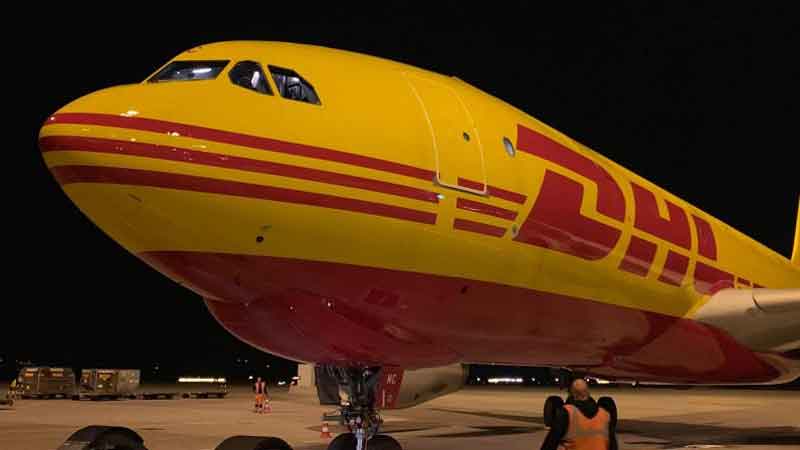DHL Express, the world's leading express service provider, is conducting a ground-breaking demonstration flight early in the morning of July 1. On its flight from the DHL hub in Leipzig to JFK International Airport in New York City, the A330-200F is scheduled to consume a considerably lower amount of fuel and generate reduced CO2 emissions. This has been made possible by the less busy airspace as a result of the Covid-19 pandemic. DHL’s operating airline European Air Transport GmbH has identified more than 50 actions to support a "perfect flight" that will save jet fuel and reduce CO2 emissions. These range from a pre-flight engine washing to improve aerodynamics, to route optimisation using a state-of-the-art flight planning system and an optimal take off route (unrestricted climb to cruising altitude from Leipzig/Halle Airport), right through to a best possible descent procedure at New York John F. Kennedy International Airport where the aircraft descends in a constant angle with minimum engine power.
"It is our purpose every day to connect people and improve their lives," said Alberto Nobis, CEO, DHL Express Europe. "We want to get our customers' shipments to the desired destination country as fast as possible. That is why we have locations in more than 220 countries and territories around the world. We are also aware of our responsibility towards the environment and we try to use innovative technologies to apply all possible levers in our logistics chain to become more efficient and environmentally friendly. Optimal routes and less jet fuel consumption will help us to become even greener.”
The "perfect flight" will be carried out under real operating conditions with the cargo plane loaded to its usual capacity (approx. 60 tons of freight). The flight is scheduled to take off from the DHL hub at Leipzig/Halle on Wednesday July 1 at around 3:15 a.m. (Central European Summer Time). The arrival in New York City is scheduled for 12:05 pm (CEST) on the same day. DHL Express developed an optimal flight scenario in cooperation with all air traffic control units and other aviation partners along the Atlantic route, including German Air Traffic Control (DFS), Eurocontrol, NATS (National Air Traffic Services, U.K.), IAA (Irish Aviation Authority), Shanwick Oceanic Control, NavCanada, ISAVIA (Iceland), IATA (International Air Transport Association), the FAA (Federal Aviation Administration) and PANYNJ (Port Authority of New York and New Jersey). A total of 13 participating institutions have committed to support an optimal flight route and altitude taking into account actual weather conditions, wind, and other air traffic during the flight. The jet fuel saving of the flight is anticipated to be 1,000 kg, which corresponds to a reduction in CO2 of 3,150 kg.
Roy Hughes, Executive Vice President, DHL Network Operations Europe, said: "We are delighted to have so many partners on board for this flight. Together we have thoroughly prepared for it and are looking forward to its execution, as well as the results. Our ‘perfect flight’ can demonstrate a route to making air freight more efficient with the lowest possible fuel consumption and a reduction of CO2 emissions. With this demonstration flight we can gain important insights for the air transport industry and contribute to the Deutsche Post DHL Group's climate goal of net zero emissions from transportation.”
This is just one of many initiatives that the Deutsche Post DHL Group is implementing on its way to making logistics and aviation as environmentally friendly as possible. With measures such as the current A330-200F fleet renewal and the acquisition of 14 new Boeing 777F aircraft which generate up to 18 percent less CO2 emissions, as well as the construction of an environmentally friendly logistics center at Cologne/Bonn Airport in 2019, the company has invested heavily in the modernization of its airfreight operations in recent years. In addition, Deutsche Post DHL Group uses green alternatives to conventional fuels in various operations. Within the framework of its membership of aireg e.V. and the Global Alliance Powerfuels, the company is pressing ahead with the development of sustainable fuels such as bio-fuel or e-fuel. For road freight, electric delivery vehicles already account for a significant proportion of the company’s fleet.









